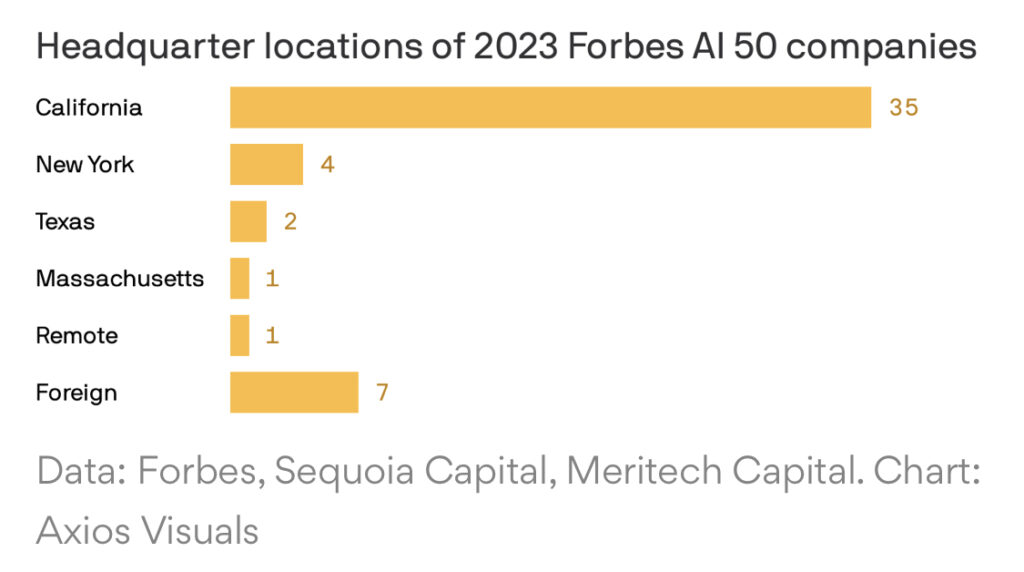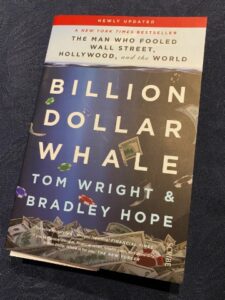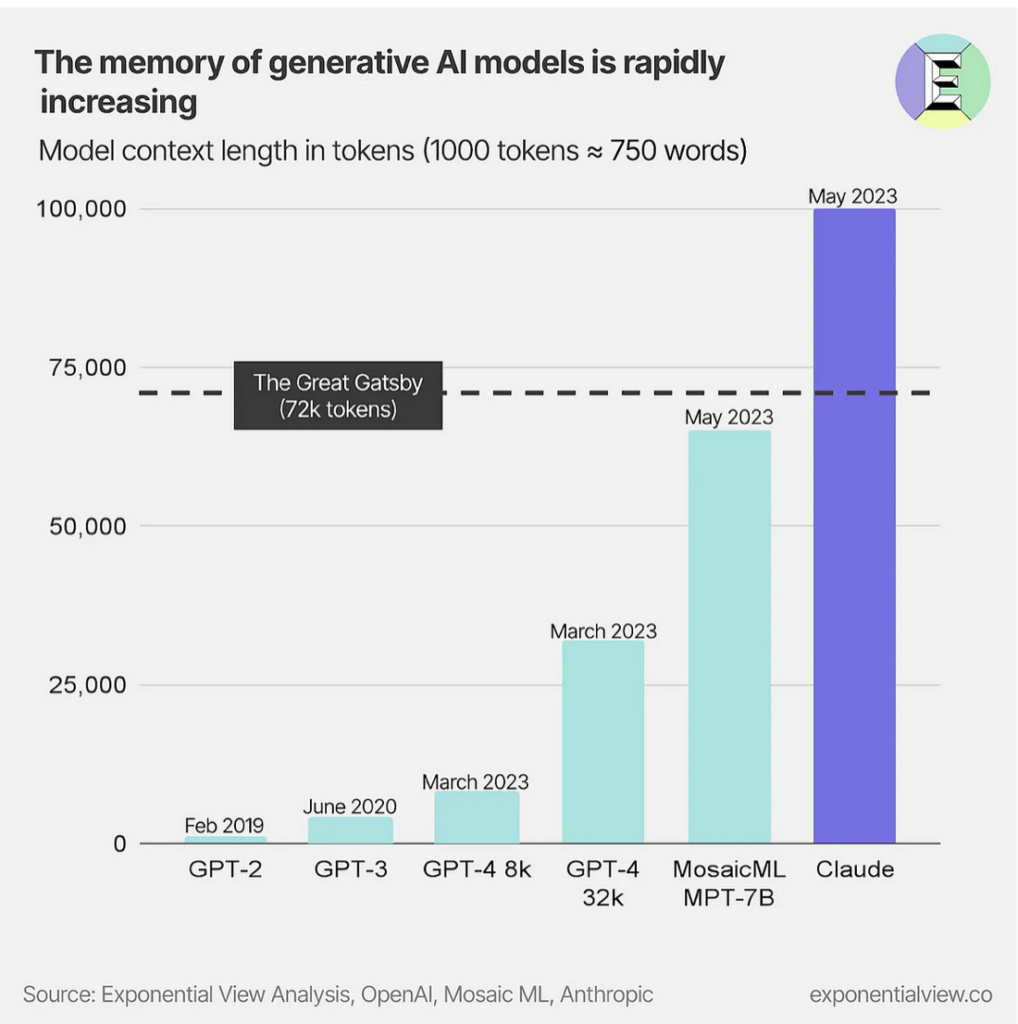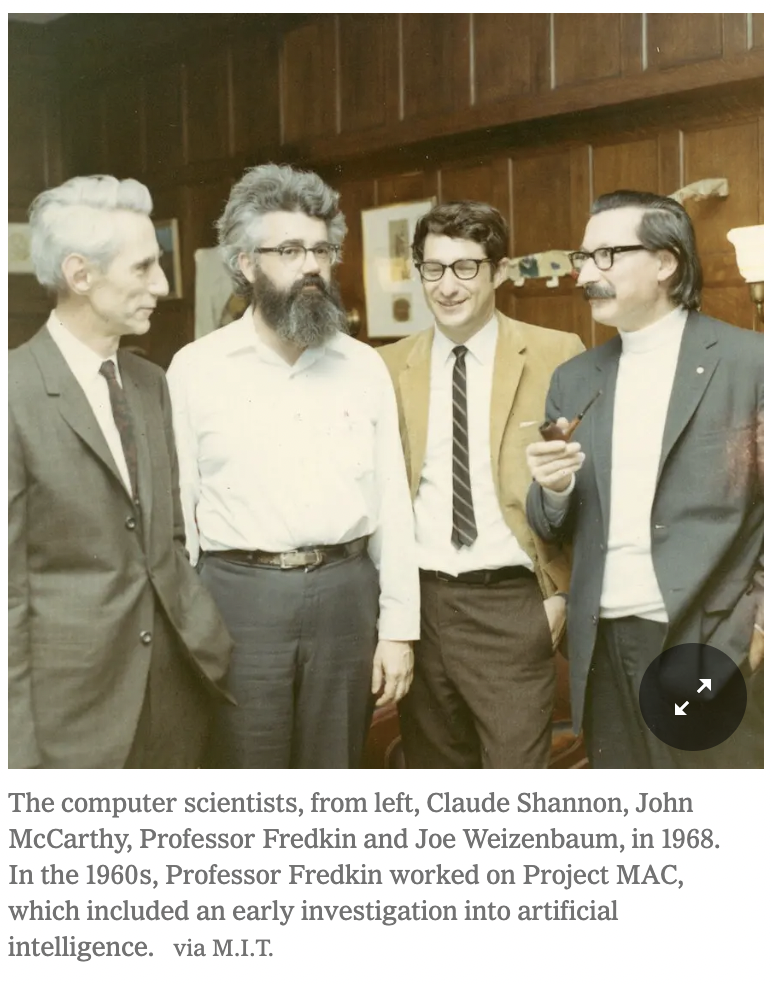Closely observed Sweet Peas
Quote of the Day
“An author ought to write for the youth of his own generation, the critics of the next, and the schoolmasters of ever afterwards.”
- F. Scott Fitzgerald
Musical alternative to the morning’s radio news
Beethoven | Piano Concerto No. 1 in C major Op. 15: Largo | Daniel Barenboim
Music doesn’t come much better than this.
Long Read of the Day
An ‘Oppenheimer Moment’ for the progenitors Of AI
As regular readers know, I am sceptical of the rhetoric emanating from the tech companies about the ‘existential risk’ posed by AI. Like many other critics, I see it as a ploy to distract public attention from the real and present dangers posed by the rather feeble ‘AI’ we currently have — and about which we should be doing something right now.
But this interesting essay by Nathan Gardels in Noema has opened up an intriguing thought: could there be a plausible existential risk emerging from current AI, but indirectly if it heated up Cold War 2.0 between the US and China? After all, they have weapons which undoubtedly pose an existential threat to humanity, and they have nothing to do with AI.
Here’s the passage in Gardels’s essay that triggered the thought. It’s when he’s discussing
the analogy between Sam Altman and Oppenheimer, who in his later years was persecuted, isolated and denied official security clearance because the McCarthyist fever of the early Cold War cast him as a Communist fellow traveler. His crime: opposing the deployment of a hydrogen bomb and calling for working with other nations, including adversaries, to control the use of nuclear weapons.
In a speech to AI scientists in Beijing in June, Altman similarly called for collaboration on how to govern the use of AI. “China has some of the best AI talents in the world,” he said. Controlling advanced AI systems “requires the best minds from around the world. With the emergence of increasingly powerful AI systems, the stakes for global cooperation have never been higher.”
One wonders, and worries, how long it will be before Altman’s sense of universal scientific responsibility is sucked, like Oppenheimer, into the maw of the present McCarthy-like anti-China hysteria in Washington. No doubt the fervent atmosphere in Beijing poses the mirror risk for any AI scientist with whom he might collaborate on behalf of the whole of humanity instead of for the dominance of one nation.
His essay is interesting throughout. Worth a read. It’s headed by a fabulous illustration by Jonathan Zawada, of which this is a thumbnail.
Go to the essay to see it in all its imaginative majesty.
Will rebranding Twitter give Elon Musk the X factor? I wouldn’t bank on it.
My column in yesterday’s Observer:
So Elon Musk, the world’s richest manchild, has changed the name of his favourite toy. Henceforth, Twitter is to be known as X. Strangely, though, you can still log on to twitter.com and be invited to tweet. This is a missed comic opportunity. Instead of the chancellor being able to say, for example, that he had tweeted his concern about the public sector borrowing requirement to the prime minister, he could be saying that he had “X’d Rishi” on the matter. Sigh.
So what is it about Musk and X? Well, it goes back quite a way – to 1999, when Musk set up X.com as an early online bank. For “early”, read “weird”…
Do read the whole piece.
Later. Just after the piece appeared, I happened to turn to James Fallows’s blog, and found this:
“Months ago, people were abandoning Xitter for Mastodon. Weeks ago, for Bluesky. Days ago, for Threads. None of these alternatives has — so far — recreated the centrality of the old Twitter, for those who viewed it as central. Musk’s destruction of this forum is a dead loss all around. The fact that he has created a gap doesn’t mean that anyone else can fill it.”
Books, etc.
On 26 and 27 June, Amazon’s Kindle Unlimited young adult romance bestseller list was filled with dozens of AI-generated books of nonsense. By Wednesday, Amazon.com had taken them out of the list but they were, apparently, still available for purchase. These were probably produced by people using ChatGPT and were easily detectable as crap.
But there are other outfits out there touting ‘AI’ tools as a way of getting writing done. Sudowrite, for example (Motto:” “Say goodbye to writer’s block”). For $10 a month it will generate 30,000 “AI words”. $25/month gets you 90,000 words. It is, apparently,
”the non-judgmental, always-there-to-read-one-more-draft, never-runs-out-of-ideas-even-at-3am, AI writing partner you always wanted.️”
It enables you to “write a novel from start to finish in a week.” Its ‘Story Engine’ “takes you step-by-step from idea, to outline, to beating out chapters, and then writes 1,000s of words, in your style”.
Elizabeth Minkel is not impressed. The headline of her essay in Wired — “Why Generative AI Won’t Disrupt Books” — communicates the gist of her message.
Here’s hoping.
Linkblog
Some things I noticed, while trying to drink from the Internet firehose.
-
“How Silicon Valley mind-set begat Hollywood’s strike.” — Los Angeles Times
-
Wikipedia’s Moment of Truth: the challenge of AI — The New York Times
This Blog is also available as an email three days a week. If you think that might suit you better, why not subscribe? One email on Mondays, Wednesdays and Fridays delivered to your inbox at 6am UK time. It’s free, and you can always unsubscribe if you conclude your inbox is full enough already!

















